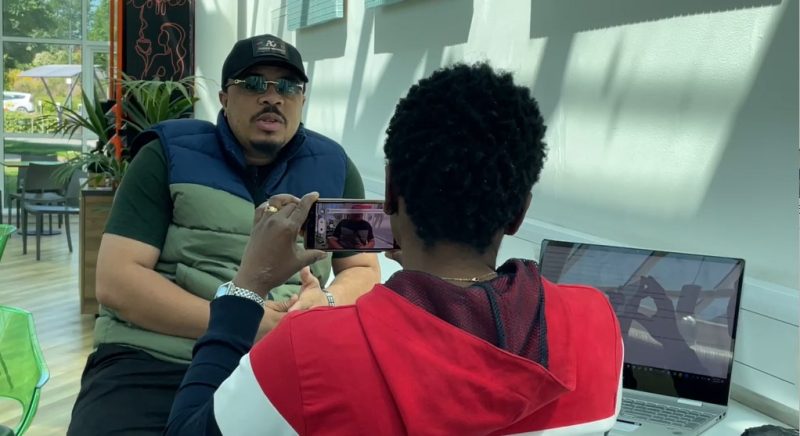My feature story is about the recent decision by the UK government to ban Masters Students from bringing their dependents into the country. I realized that the topic has ignited widespread discussions and raised concerns among the international student community.
To provide a comprehensive analysis of this topic, I conducted a series of interviews with key stakeholders that were carefully selected. This included an international student who serves as the president of the Society of Nigerian Students at Bournemouth University, a representative from the Dorset Race Equality Council, a dependent of a student at Bournemouth University, and a University staff member.

One of the major challenges I faced during this research was the difficulty in securing interviews. University staff members were particularly reluctant to discuss the ban, possibly due to its sensitive nature. Despite facing limited positive responses, I remained determined to gather diverse perspectives. Consequently, I personally visited various offices on campus, which eventually led to securing an interview with a Bournemouth University staff member.
Furthermore, I spoke with a dependent of a student at the university to gain a firsthand understanding of the potential impact on how families can be affected by the ban. I believe his perspective adds a crucial human element to the discussion, highlighting the emotional toll and practical challenges that families may face. Additionally, I reached out to immigration experts both on campus and off campus to gain insights into the rationale behind the government’s decision and its potential consequences on the UK’s higher education sector. But none of them gave me the audience. I had to move on and find another angle to look into.
A crucial aspect of this report was to examine the broader implications of the ban on integration, diversity, and inclusion within the UK. To delve deeper into these concerns, I reached out to the Dorset Race Equality Council. The representative from their organization provided invaluable insights into the consequences of the ban, emphasizing the significance of fostering an inclusive environment while addressing immigration-related issues.
The making of my short form video comprises of small interview clips with my diverse range of interviewees, providing their unique perspectives on the issue. By incorporating their voices, the video added an authentic and personal touch to the narrative, allowing viewers to connect with the individuals directly speaking on the ban.
To provide a visual context, I captured footage of the university campus, specifically highlighting the arrival of families and the bustling school environment. These visuals, shot by myself, served as a powerful visual backdrop that further reinforced the impact of the ban on student dependents. By showcasing families navigating through campus, the video emphasized the reality of the situation and its potential consequences on students and their loved ones.
Moreover, I added voiceover narration in the video, offering my own insights and analysis of the subject matter. This allowed me to share my understanding of the ban and its implications. By incorporating my voice, the video provided a cohesive and informative experience for viewers, ensuring that all key points were effectively communicated.
Aside the challenges I faced trying to secure interviews, I personally faced the additional hurdle of balancing my responsibilities as a parent while undertaking this project. Juggling the demands of caring for my child and conducting research added an extra layer of complexity to the already demanding task at hand. This often meant working late into the night or waking up early in the morning to make progress on the project.
Despite the challenges faced in securing interviews, the gathered insights shed light on the multifaceted implications of the UK’s ban on student dependents. The perspectives shared by the international student, the Dorset Race Equality Council representative, and the dependent of a student offered a comprehensive understanding of the concerns surrounding integration, diversity, and inclusion. Furthermore, the visual presentation in the form of a short-form video enriched the audience’s comprehension of the topic. By presenting a well-rounded view, this feature contributes to the ongoing discussions surrounding the ban and encourages nuanced deliberation on its effects within the higher education landscape.
In reflecting on the journey of this project, I am grateful for the breakthroughs achieved and the valuable insights gained.




